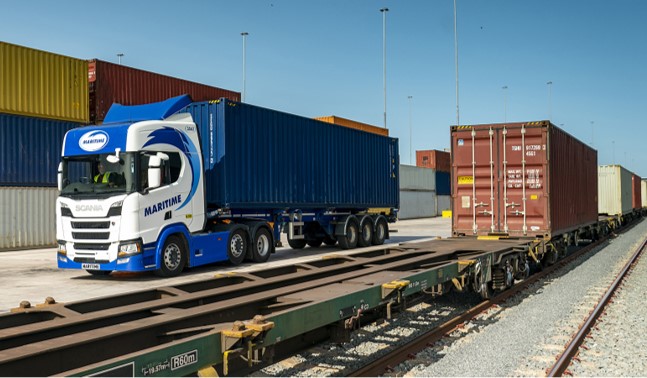There is on-going debate on how the UK freight sector policy, mode mix, and motive energy needs to evolve to overcome the challenge of delivering net zero. However, the complexity of the freight industry, combined with the number of stakeholders and the vast investment required makes it extremely difficult to establish any stable consensus on the best strategy and plan for the UK.
At our recent workgroup sessions on the Future of Fuel in UK Logistics we welcomed Nick Gazzard FCILT, author of the Independent Transport Commission (ITC), Alex Williams, Director at Maritime Transport UK and Jamie Hirst, Commercial Manager at Culina. We would like to thank them for their invaluable insights into the topic.
Considerable debate remains on the best options for motive energy (Hydrogen Vs grid power), infrastructure and vehicles.
Many logistics operators are starting to use electric vehicles (EVs) for urban and peri-urban transport however the use of EV HGVs presents a quite different challenge due to distances travelled, the battery weight, insufficient charging infrastructure and slow charging speeds. Recent research by the Centre for Sustainable Road Freight into electrifying roads (ERS) to enable HGV (Heavy Goods Vehicle) trunking movements shows promise, but current pilots have been put on hold. Hydrogen power is attractive in principle, due to faster re-fuelling and greater range, but a commercially viable proposition is some way off. Government policy is headed the right way. However, the challenges around infrastructure, fuel production and distribution and the higher vehicle costs for both EVs and hydrogen means neither are likely to be able to make any meaningful impact for HGVs much before 2035.
The key question around the table was ‘what can we do now and in the next 5+ years?’. To which the answer was ‘reduce road miles within our current operations’.
Whilst HVO fuel provides a tactical solution to reducing emissions, reducing road miles provides the only sustainable decarbonization strategy for HGVs. Manufacturers and logistics operators must act now, targeting reduced order frequency and increased minimum order quantities (MOQs) to improve pallet and vehicle cube utilization, and explore better order consolidation to the same customers. Effective pallet and vehicle utilisation can radically reduce road miles, emissions and cost, endorsed by Culina’s Jamie Hirst who indicated their multi-supplier chilled consolidation network was achieving 95% fill on outbound deliveries and only 10% empty running.
One critical, but perhaps overlooked lever to reduce road miles and emissions is a mode shift to rail. With UK road traffic predicted to grow 22% from 2015 to 2035 and congestion rising by 30% growth by 2025 further affecting road journey times, the number of trucks on the road must be reduced.
Rail is already the least emissions-intensive mode of transport, contributing just 1.4% of the UK's domestic transport emissions. While there is a way to go on the journey to decarbonising rail, the CILT has recently released their strategy demonstrating opportunity for the UK to electrify 95% of rail freight operations by the mid-2040, with only 800 miles of additional electrification is needed.
The current benefit of rail was well articulated by Alex Williams of Maritime, who shared that for the 20% of Maritime’s container movements being carried by rail, this represented a 49% reduction in CO2 emissions vs their traditional journey by road.
As a consequence of our discussions, and in recognition of the need to manage the cost-headwinds as well as the need to reduce our environmental impact, we are setting up a sub-group working with suppliers, embracing the challenge of working towards net-zero.
The group will develop and share best-practice on how to engage with customers and providers to improve vehicle and cube utilisation and embrace lower-carbon fuels and modes of transport, as a part of their logistics mix. If you are interested in making a difference, rather than just talking, come join us and help prove what can be done, starting NOW.
The future of freight emissions to 2050 is very much in our hands and with options to significantly reduce emissions already available to us, we must embrace the opportunity to change now, rather than wait for future technology to deliver it for us sometime in the future.





